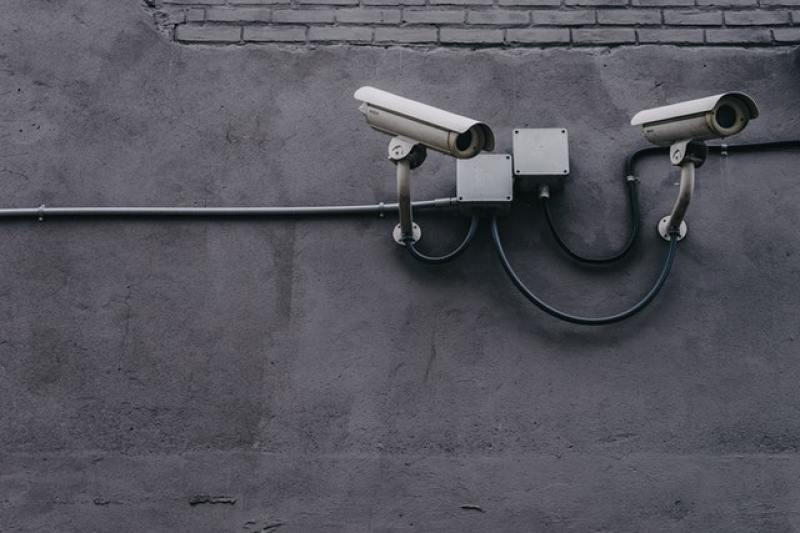
In the face of attacks increasing on churches and pro-life pregnancy centers due to the United States Supreme Court draft opinion leak, insurance experts raise a need for houses of worship to reevaluate their security measures in place.
Insurance experts find religious organizations and houses of worship an easy target for thieves and evildoers, Religion News Service highlighted.
An Insurance Expert's Observation
Church Mutual Insurance Company Risk Control Vice President Eric Spacek pointed to the nature and resource capacity of religious organizations as areas of security concern during an interview with the media outlet. Spacek said houses of worship do not typically prioritize security due to financial constraints and being places of trust.
"Houses of worship tend to be trusting places. Plus, there are budgetary restrictions in many churches. Their security could be seen as a volunteer effort," Spacek said.
This is despite the fact that many houses of worship containing priceless historical artifacts, such as the St. Augustine Church in Brooklyn, New York. St. Augustine Church's solid 18-carat $2 million worth tabernacle containing the sanctified Eucharist was stolen in May. The thief also decapitated the angels outside the church and scattered the Eucharist at the altar.
Another case involved the 200-year-old St. John the Evangelist Catholic Church in Hydes, Maryland whose tabernacle was also stolen. The San Fernando Cathedral in San Antonio, Texas, on the other hand, was vandalized by a man who toppled its century-old statues.
Since the robbery of the Brooklyn church, Church Mutual Insurance Company Senior Fine Arts Consultant Leiza McKenna said they have been checking in on clients and updating their policies. Church Mutual is an insurance provider for various religious organizations in the country. McKenna expressed hopes that there are no copycats though they are confident they have implemented measures to protect their clients with insurance as much as possible.
Washington National Cathedral Chief Communications Officer Kevin Eckstrom told the RNS that they have heightened security in place due to the "rare items" they have. The cathedral is one of the most-visited houses of worship in the country and possess valuable heritage like statues of Mother Teresa and Rev. Martin Luther King, Jr.. They also have a carillon and a 10-bell peal, which are precious furnishings though difficult to steal being 2 tons in weight each.
Unlike the Washington Cathedral, St. John the Evangelist Communications Coordinator Megan Malkus said the robbery they experienced, which doesn't normally happen, baffled them and enabled them to open their eyes "to the fact that bad things happen to good people."
Also Read: Vandals Continue Attacking Churches, Defacing And Destroying Church Property
Malkus said that they have already bolted into place a new tabernacle from a donor and installed a new security system. The worse part of the experience, Malkus said, is not the tabernacle being stolen for its monetary value but the reality that "someone came in and stole Jesus from the church."
Federal Assessment On The Security Of Houses Of Worship
The Federal Bureau of Investigation announced last week that they are already investigating the attacks on Catholic churches and pro-life pregnancy centers caused by the leaked draft opinion in May. The bureau has earlier met with the United States Conference of Catholic Bishops in February.
The meeting was due to the increase in cases of vandalism and robbery experienced by at least 100 of USCCB's churches in the country, which have been regarded as hate crimes. This is similar to hate crimes increasing by 200% against Buddhists and 82% against Sikhs in 2019, as per the Department of Justice. While hate crimes against Jews and Muslims have declined by 28% and 38%, respectively.
The February meeting also involved the Congregation Beth Israel, which experienced a similar crisis but entailed bomb threats and active shooters. The FBI concluded in that meeting that houses of worship "require robust protection efforts, which start with effective partnerships."
"The threats to public spaces in our country are among the diverse dangerous threats that the men and women of the FBI work tirelessly to counter every single day, sometimes risking their lives in the process. Those threats underscore the complexity and breadth of the FBI's mission: to protect the American people and uphold the Constitution of the United States," the FBI said.
The United States Federal Emergency Management Agency, responding to the increased threats, released in April guidelines to improve security and safety for community spaces and places of worship. The FEMA said security preparedness should be undertaken one step at a time throughout the year and recommended worship leaders take the time to watch their webinar on the matter.
The agency also recommended knowing how to respond to man-made threats and incidents in one's safe place through the "Mitigating Attacks on Houses of Worship Security Guide" and "Houses of Worship Security Self-Assessment."
According to FEMA, learning more about the resources available to houses of worship and considering a non-profit security grant are other matters worth looking into aside from learning to ask for help from reputable organizations and institutions.
Related Article: Bishops Ask For Prayer To Resist Church Vandalism, Abortion On Religious Freedom Week


















